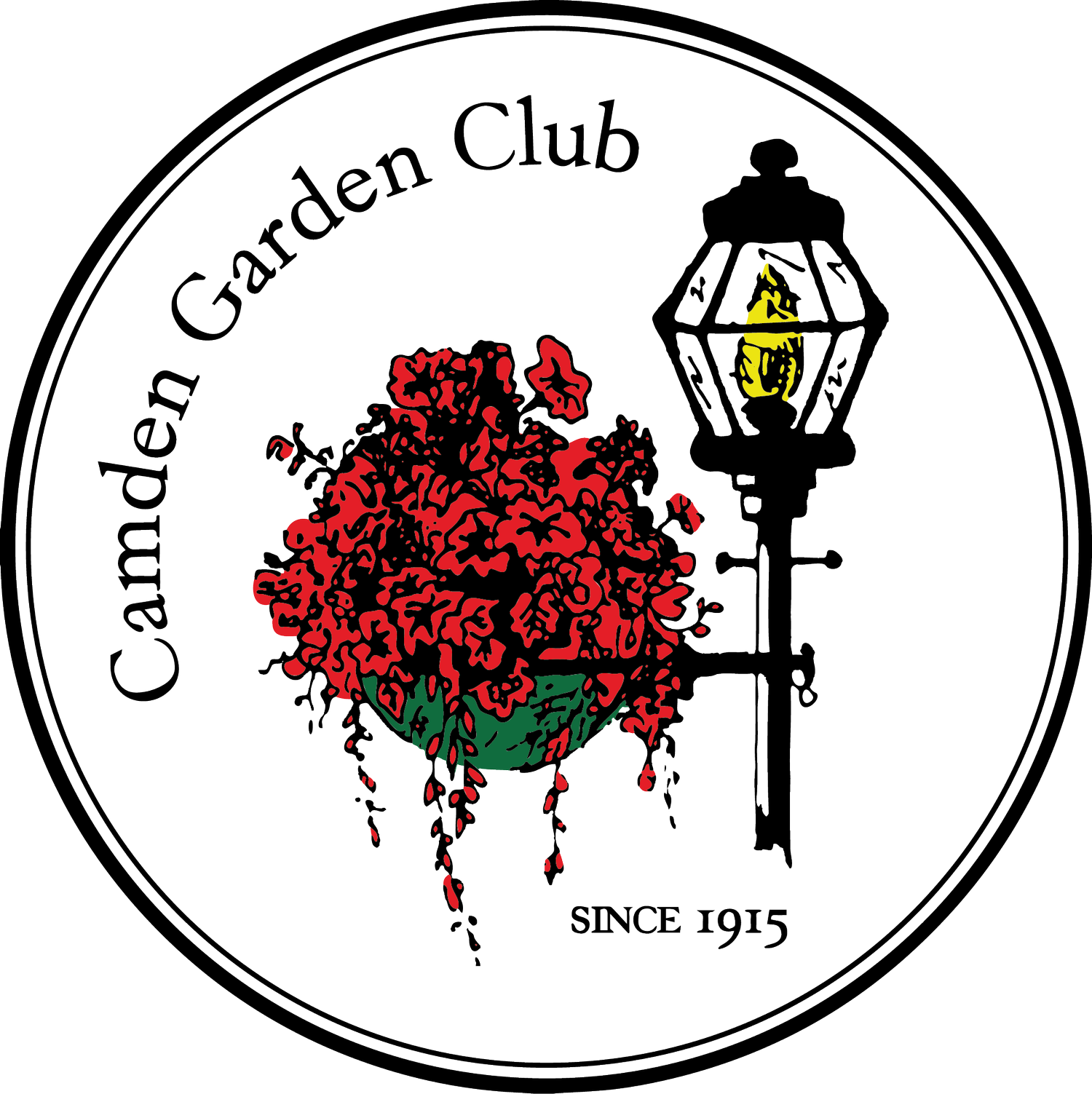By Camden Garden Club Member David C. Kibbe, MD:
Hugelkultur is a slow composting technique -- roughly translated from the German as “mound garden” that I have used in several projects on my small urban farm garden in Camden over the past two years. The results have been very encouraging. Put simply, hugelkultur is a centuries old way of building a garden bed on top of rotting wood and plant debris, but it can perform other functions, too.
In one application, I used hugelkultur to fill an eroded three-foot-deep depression between four mature oak trees to help create a shade garden roughly ten feet wide by ten feet long. As I was clearing my land of scrub and small pioneer trees, the woody debris was right at hand. It was easily stacked in the hollowed out space and then covered with a several inches of topsoil and leaf mulch in a single thick layer. Into that, I planted several native and ground cover plants. Now, several months later, they are all growing nicely.
Hugelkultur in action to create a shade garden in a previously depressed wet area. Plants were added to the dark-soiled area and allowed to grow in place. Photo credit: David Kibbe.
I also used hugelkultur to fill the first 16 to 18 inches of two large container beds for growing vegetables with wood and branches.
Raised beds using hugelkultur. Photo credit: David Kibbe.
In another part of my property, I used hugelkultur to create bioswales that help to manage surface runoff water on my property and add new spaces for planting. In these bioswales, I filled a three-foot-deep trench with two feet of wood.
A bioswale created using hugelkultur during the project. Photo credit: David Kibbe.
A bioswale created using hugelkultur several weeks after project completion. Photo credit: David Kibbe.
Hugelkultur creates a moisture-retaining and composting-in-place substrate that helps to slowly fertilize the upper layers and, if used on a slope, also gently waters the downhill plants and trees. You can think of the woody layer as a fungi- and bacteria-rich sponge of organic material that will last for years. Decreasing erosion from surface water run off and dispersing the water across a slope are added benefits. My downhill apple, peach and pear trees loved the slow watering, too.
— Camden Garden Club Member David C. Kibbe, MD
About the Author
David C. Kibbe, MD is a member of the Camden Garden Club and Camden resident. In October 2022 David will provide a talk on "Re-Wilding the Urban Environment" as a speaker at the Camden Garden Club's monthly speaker series.





